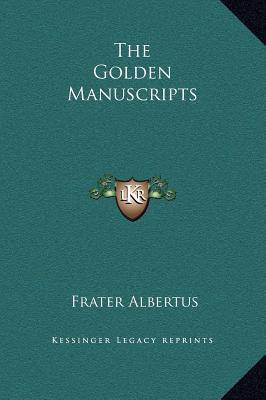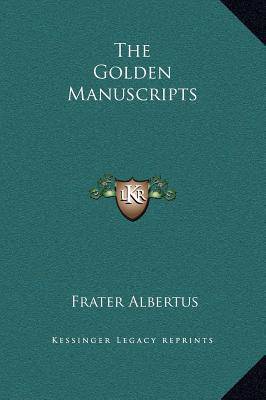
- Retrait gratuit dans votre magasin Club
- 7.000.000 titres dans notre catalogue
- Payer en toute sécurité
- Toujours un magasin près de chez vous
- Retrait gratuit dans votre magasin Club
- 7.000.000 titres dans notre catalogue
- Payer en toute sécurité
- Toujours un magasin près de chez vous
Description
The Golden Manuscripts by Albertus, Frater is a book that delves into the world of alchemy and the occult. The author, Frater Albertus, was a well-known alchemist and founder of the Paracelsus Research Society. In this book, he shares his knowledge and insights on the art of alchemy, including its history, principles, and practical applications.The book is divided into three parts. The first part provides an introduction to alchemy and its various branches, including spiritual alchemy, laboratory alchemy, and medical alchemy. The second part delves deeper into the principles of alchemy, including the three essentials of alchemy (sulfur, mercury, and salt), the four elements (earth, air, fire, and water), and the seven planets (Sun, Moon, Mercury, Venus, Mars, Jupiter, and Saturn).The third part of the book is devoted to practical applications of alchemy, including laboratory experiments and the creation of the philosopher's stone. Frater Albertus provides detailed instructions for various alchemical processes, including distillation, calcination, and fermentation. He also discusses the role of meditation and spiritual practices in the alchemical process.Overall, The Golden Manuscripts is a comprehensive guide to the art of alchemy, written by a respected practitioner and teacher. It is a must-read for anyone interested in the history and principles of alchemy, as well as those seeking practical guidance on its application.They Made the Philosophers Stone by Richard Ingalese; The Hermetic Art�������Teaching Concerning Atomic Transmutation by Volpierre (1892-1952); The True Book of the Learned Synesius a Greek Abbot Taken Out of the Emperor's Library Concerning the Philosopher's Stone; Circulatum Minus Urbigeranum, or The Philosophical Elixir of Vegetables with the Three Certain Ways of Preparing it Fully and Clearly Set Forth in one and Thirty Aphorisms by Baru Urbigerus.This scarce antiquarian book is a facsimile reprint of the old original and may contain some imperfections such as library marks and notations. Because we believe this work is culturally important, we have made it available as part of our commitment for protecting, preserving, and promoting the world's literature in affordable, high quality, modern editions, that are true to their original work.
Spécifications
Parties prenantes
- Auteur(s) :
- Editeur:
Contenu
- Nombre de pages :
- 168
- Langue:
- Anglais
Caractéristiques
- EAN:
- 9781169272187
- Date de parution :
- 10-09-10
- Format:
- Livre relié
- Format numérique:
- Genaaid
- Dimensions :
- 178 mm x 254 mm
- Poids :
- 512 g







